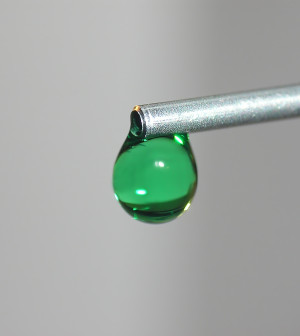- Could Your Grocery Store Meat Be Causing Recurring UTIs?
- Are You Making This Expensive Thermostat Error This Winter?
- Recognizing the Signs of Hypothyroidism
- 10 Strategies to Overcome Insomnia
- Could Artificial Sweeteners Be Aging the Brain Faster?
- Techniques for Soothing Your Nervous System
- Does the Water in Your House Smell Funny? Here’s Why
- Can a Daily Dose of Apple Cider Vinegar Actually Aid Weight Loss?
- 6 Health Beverages That Can Actually Spike Your Blood Sugar
- Treatment Options for Social Anxiety Disorder
Menopause Before 40? Risk of Broken Bones May Be Higher

Women who undergo menopause before age 40 are more likely to get broken bones, and a new study suggests calcium and vitamin D supplements won’t eliminate the extra risk.
Researchers were disappointed by the finding because supplements and hormone replacement therapy have been thought to improve bone health.
The researchers were led by Dr. Shannon Sullivan, medical officer from the U.S. Food and Drug Administration. They examined the medical records of almost 22,000 women who took part in the Women’s Health Initiative. This 15-year study, by the U.S. National Institutes of Health, reviewed the most common causes of poor health and death among postmenopausal women.
The study team found that those women who entered menopause before age 40 had a significantly higher risk of broken bones than those who did later, regardless of the treatments they tried. On average, women enter menopause around age 52.
The researchers said there’s hope for other strategies, including earlier or longer treatment with calcium, vitamin D or hormones; different doses; or longer follow-up.
The study was published recently in Menopause, the journal of the North American Menopause Society.
“This study highlights the need for health care providers to take into consideration a woman’s age at menopause onset when evaluating patients for fracture risk,” said Dr. JoAnn Pinkerton, the society’s executive director.
“Women at risk for bone loss need 1,200 mg (milligrams) of calcium per day, with adequate vitamin D, and [are] encouraged to get as much as possible through diet due to concern that too much supplemental calcium may increase atherosclerotic plaque in women,” she said in a society news release.
Pinkerton added that women with early menopause should ask their health care provider whether they are candidates for hormone therapy and discuss appropriate amounts of calcium, vitamin D and hormones.
More information
For information about preventing hip fractures, try the U.S. Centers for Disease Control and Prevention.
Source: HealthDay
Copyright © 2026 HealthDay. All rights reserved.










